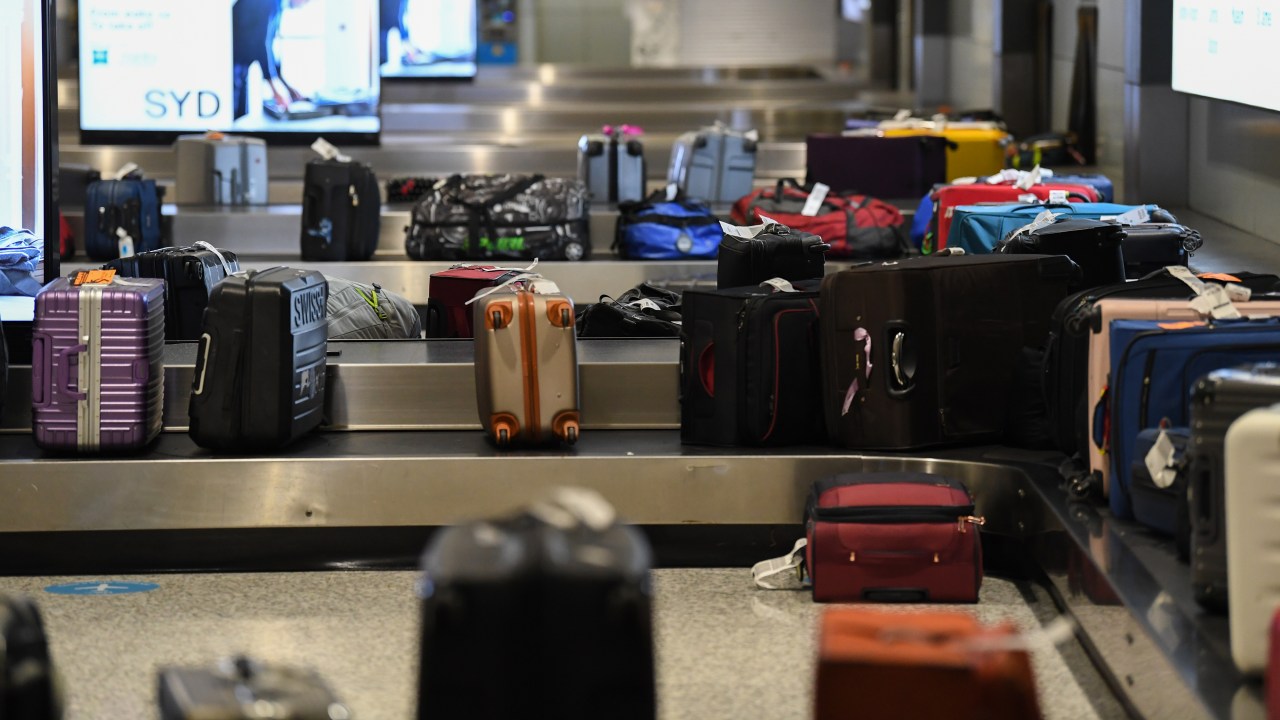Millions of travellers worldwide have been warned against opting for a simple and popular travel hack designed to speed up travel processes, as it in fact does the complete opposite.
Sky News contributor Evelyn Rae says Finnair’s decision to weigh their passengers before they board a plane is “a recipe for disaster”.
Finnair announced it would weigh their passengers with their carry-on luggage before they board a plane as a way to reduce fuel waste.
“My theory is that it’s a scam so they can make more money and fit more people on the plane,” she told Sky News host Caleb Bond.
“I hate the body positivity thing, I actually think it hurts people.
“But I also don’t think shaming people because they might be struggling with something in their life is also a bad thing.”
Eager holidaymakers often opt out of checked bags to save money, avoid delayed baggage arrival, or over fears their bag will become lost.
Many people who have no choice but to go ahead with checked luggage often add a personal marker on their suitcase, like a ribbon, name tag or accessory, in a bid for smoother travel.
However, speaking to RSVP Live on Monday, Dublin Airport baggage handler John advised travellers to remove the ribbons as the hack in fact delays bags from arriving on the baggage carousel.
A baggage handler at a major international airport has issued a strict warning to millions of avid travellers who add a personal marker to their unchecked bags. Picture: James D. Morgan/Getty Images
Loading embed…
“Ribbons that people tie onto their suitcases to help identify them can cause issues with the bag being scanned in the baggage hall,” he said.
“If the bag can’t be scanned automatically it can end up in manual processing, which could mean your bag doesn’t make it to the flight”.
John also suggested passengers “remove old stickers off the bag” as it could “cause confusion with the scanning process”.
He also advised placing a suitcase wheels up for less damage, and opting against packing Marzipan as it has the same density as some explosives.
Dublin Airport baggage handler John advised travellers to remove the ribbons as the hack in fact delays bags from arriving on the baggage carousel. Picture: Marcus Brandt/picture alliance via Getty Images
It comes as Dublin Airport in April announced one third of its more than 30 existing X-ray scanners were replaced by “new cutting edge” C3 scanners which generate 3D images of bags.
The new scanners are designed to eliminate hurdles after it was identified several passengers with medical ailments encountered issues at security screening the same month.
Airport Communications Director Sarah Ryan in May warned passengers should travel with light clothes on their back to prepare for the security screening process.
She said passengers can speed up their journey by preparing “to take hoodies and baggy jumpers off at security screening” and “any boots or footwear which extends above the ankle”.
“By preparing smartly in advance, passengers can avoid needless delays”.
Qantas has rolled out a new boarding procedure for domestic travellers to improve on-time performance.
Under the new system, passengers will be assigned a number from one to six on their boarding pass and asked to board when their number is called.
It’s hoped to reduce the amount of time passengers spend queuing.
Passengers at Brisbane Airport will be the first to use the new procedure on Monday.
Meanwhile, Australia has joined the ranks of prominent airports introducing innovative technology to iron out travel delays.
Virgin Australia in January became the first Australian airline to expand a baggage tracking feature to cover its domestic and international network.
Customers who have the Virgin Australia app and have enabled notifications can receive alerts when their baggage has been checked-in and loaded onto the plane.
They can also receive notifications when their bags have been transferred onto a connecting flight and upon arrival, can be advised which carousel they can pick-up the luggage from.
Qantas last year also added its own ‘track my bags’ feature to its app, with the tool available when flying directly between any one of 10 listed domestic destinations including Adelaide, Alice Springs, Brisbane, Cairns, Canberra, Darwin, Melbourne, Perth, Sydney and Townsville.
Last September, Air New Zealand rolled out its baggage tracking feature to all users of the airline’s app following a five month trial.

